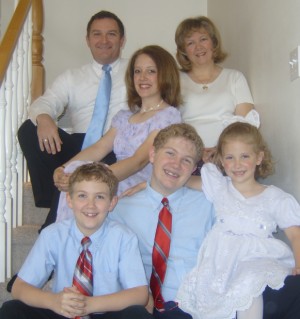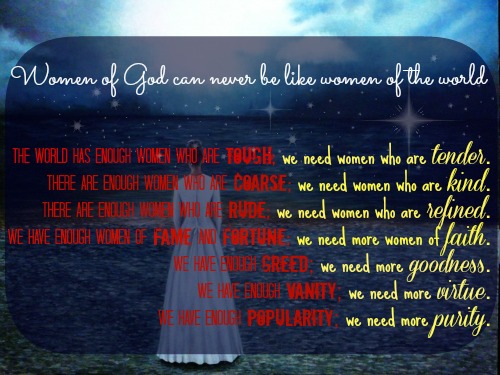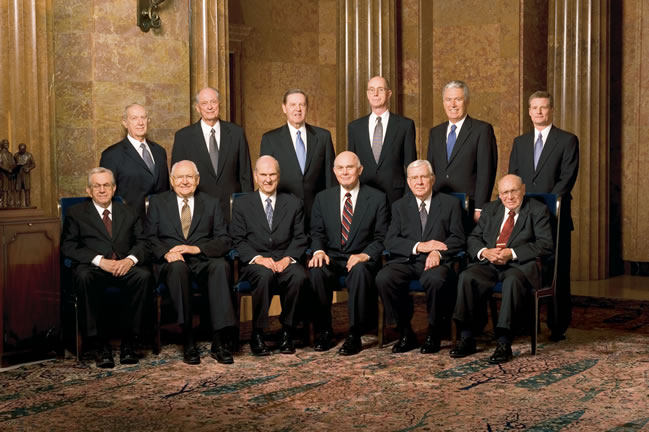“I’m inspired by this Mormon theological idea: God intended for humans to be free to make our own choices and live with the consequences of those choices,” freelance writer Mark Jensen wrote in his Canada Free Press piece titled “Smart Mormons.”
Freedom of choice, or agency, is one of the greatest gifts God has given to His children. Members of The Church of Jesus Christ of Latter-day Saints, sometimes mistakenly called the Mormon Church, believe that it is central to God’s plan for us. President Thomas S. Monson said,
I am so grateful to a loving Heavenly Father for His gift of agency, or the right to choose. President David O. McKay, ninth President of the Church, said, “Next to the bestowal of life itself, the right to direct that life is God’s greatest gift to man.”
Mormon doctrine teaches that every person lived in heaven before we were born on earth; that realm is called pre-mortal or pre-earth life. They believe that our Heavenly Father had a great council and taught us His plan for His children.
President Monson continued,
We know that we had our agency before this world was and that Lucifer attempted to take it from us. He had no confidence in the principle of agency or in us and argued for imposed salvation. He insisted that with his plan none would be lost, but he seemed not to recognize—or perhaps not to care—that in addition, none would be any wiser, any stronger, any more compassionate, or any more grateful if his plan were followed.
We who chose the Savior’s plan knew that we would be embarking on a precarious, difficult journey, for we walk the ways of the world and sin and stumble, cutting us off from our Father. But the Firstborn in the Spirit offered Himself as a sacrifice to atone for the sins of all. Through unspeakable suffering He became the great Redeemer, the Savior of all mankind, thus making possible our successful return to our Father.
The prophet Lehi tells us: “Wherefore, men are free according to the flesh; and all things are given them which are expedient unto man. And they are free to choose liberty and eternal life, through the great Mediator of all men, or to choose captivity and death, according to the captivity and power of the devil; for he seeketh that all men might be miserable like unto himself” (2 Nephi 2:27).
Lehi, a prophet in the ancient Americas found in The Book of Mormon, teaches that “men are instructed sufficiently that they know good from evil” (2 Nephi 2:5). Of Lehi and his teachings, Elder Robert D. Hales said,
That is why Lehi, who understood the Savior’s role in preserving and reclaiming our agency, taught Jacob—and us: “The Messiah cometh in the fulness of time, that he may redeem the children of men from the fall. And because that they are redeemed from the fall they have become free forever, knowing good from evil; to act for themselves and not to be acted upon” (2 Nephi 2:26). That is the key—”to act for themselves and not to be acted upon.”
… Our use of agency determines who we are and what we will be.
Jensen concludes his editorial with an interesting comparison between the Mormon theology of freedom of choice and politics. He cites the Founding Father’s belief in freedom as quoted in the Declaration of Independence:
We hold these truths to be self-evident, that all men are created equal, that they are endowed by their Creator with certain unalienable Rights, that among these are Life, Liberty and the pursuit of Happiness.
Jensen writes:
For a Mormon, the battle for liberty is not unique to this life; it is the core battle of the ages. Lucifer lost the war in heaven … but the war continues on earth.
My study of Mormonism has not only given me new-found respect for this people and their religion; it has also made me evaluate my own attitude towards the liberty that seems to be slipping through all of our fingers. Is this just something that is nice to have, and for which I thank the Founding Fathers? Or is it really something that is endowed by God, and that He expects me to fight for? According to Mormon theology, I already fought for this once. The fact that I’m here says that I was on God’s side in the war in heaven, and fought for liberty.
A Mormon might ask, why should any of us be less willing to fight for it here than we were there?





